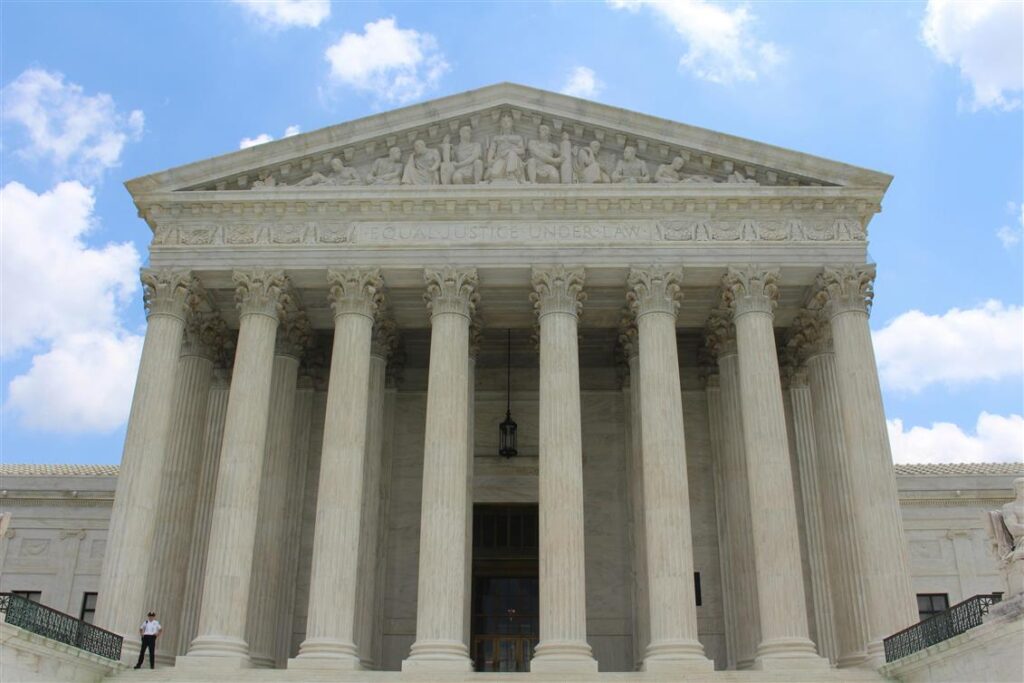
Access to legal representation is a fundamental right, yet many individuals and families in Plano, Texas, face significant challenges in securing legal assistance due to financial constraints. Legal matters, whether involving family law, criminal defense, immigration, or civil disputes, can have life-altering consequences. However, for those who cannot afford private attorneys, pro bono lawyers in Plano, Texas, provide a critical lifeline to justice.
In this article, we will explore what pro bono legal services are, how they help the community, and how you can find pro bono lawyers near you if you need legal assistance but lack the financial resources to hire an attorney.
What Are Pro Bono Lawyers and Why Do They Matter?
Understanding Pro Bono Legal Services
The term “pro bono” comes from the Latin phrase “pro bono publico,” meaning “for the public good.” Pro bono lawyers are attorneys who volunteer their time and expertise to provide free legal services to individuals who cannot afford representation. These lawyers take on cases without expecting financial compensation, often working through nonprofit organizations, bar associations, and legal aid groups.
Why Pro Bono Lawyers Are Essential
Many people assume that legal aid is only necessary for criminal cases, but the reality is that civil legal issues can be just as devastating. Without proper legal representation, individuals facing evictions, domestic violence, custody battles, or immigration challenges may struggle to defend their rights.
Pro bono lawyers help bridge the justice gap by ensuring that low-income families, victims of abuse, veterans, and other vulnerable individuals receive fair treatment under the law. By providing free legal representation, pro bono attorneys play a crucial role in upholding justice and equality within the legal system.
Types of Cases Pro Bono Lawyers Handle
Not all legal matters qualify for pro bono representation, but many attorneys offer their services in the following areas:
1. Family Law Cases
- Divorce and separation
- Child custody and support
- Domestic violence protection orders
- Guardianship cases
2. Criminal Defense
- Misdemeanor and felony charges
- Wrongful convictions
- Expungement of criminal records
3. Immigration Law
- Asylum applications
- Deportation defense
- Visa and green card assistance
4. Housing and Tenant Rights
- Eviction defense
- Landlord disputes
- Housing discrimination cases
5. Civil Rights and Employment Issues
- Workplace discrimination
- Unpaid wages or labor law violations
- Protection for whistleblowers
6. Consumer Rights and Debt Relief
- Bankruptcy filings
- Unfair debt collection practices
- Identity theft and financial fraud cases
How to Find Pro Bono Lawyers Near Me
If you are searching for pro bono lawyers near me, there are several resources and organizations that can connect you with free or low-cost legal assistance in Plano, Texas.
1. Legal Aid of NorthWest Texas
This nonprofit organization provides free legal services to low-income residents of Texas. They assist with housing, family law, consumer protection, and public benefits cases.
Website: lanwt.org
Phone: (888) 529-5277
2. Dallas Volunteer Attorney Program (DVAP)
DVAP works with volunteer attorneys to provide free legal clinics for individuals in need. They assist with family law, probate, and immigration cases.
3. State Bar of Texas Pro Bono Programs
The State Bar of Texas provides a directory of lawyers offering free or reduced-cost legal services.
4. Law School Clinics
Several law schools in Texas operate pro bono legal clinics where students work under licensed attorneys to help individuals in need. Southern Methodist University (SMU) Dedman School of Law in Dallas is one such institution offering free legal aid.
Who Qualifies for Pro Bono Legal Assistance?
Income Eligibility Requirements for Pro Bono Legal Services
Pro bono legal services are designed to help low-income individuals and families who cannot afford legal representation. To ensure that limited resources are allocated to those in genuine financial need, most pro bono programs have strict income eligibility criteria based on federal poverty guidelines (FPL).
These guidelines are updated annually by the U.S. Department of Health and Human Services (HHS) and vary depending on household size and location. Many legal aid organizations set their eligibility threshold at 125% to 200% of the federal poverty level, meaning that applicants must earn below that percentage of the FPL to qualify for free legal assistance.
How the Federal Poverty Guidelines Work
The Federal Poverty Level (FPL) is a measure used to determine financial eligibility for various assistance programs, including Medicaid, food assistance, and legal aid services. The threshold is based on annual household income and family size.
For example, in 2024, the FPL for a family of four is approximately $31,200 per year. This means that:
- At 125% of the FPL, a family of four would need to earn $39,000 or less annually to qualify for most pro bono legal services.
- At 200% of the FPL, the eligibility limit would be $62,400 per year for a family of four.
Each legal aid organization may set its own income limits, so it is always recommended to check with the provider directly to determine eligibility.
Who Typically Qualifies for Pro Bono Legal Assistance?
Individuals and families who earn at or below the income threshold are usually eligible for free legal representation. Some of the most common groups that qualify include:
- Unemployed or underemployed individuals struggling to make ends meet.
- Single parents with limited income who need legal assistance for child custody or support cases.
- Elderly individuals on fixed incomes seeking help with estate planning or elder law issues.
- Disabled individuals who rely on Social Security or disability benefits.
- Victims of domestic violence who require legal protection but lack financial independence.
- Veterans and military personnel facing financial hardship.
Exceptions and Special Considerations
Even if an applicant’s income exceeds the standard eligibility limits, some pro bono programs may make exceptions based on:
- Extraordinary medical expenses that reduce disposable income.
- High costs of living in certain metropolitan areas, including parts of Plano, Texas.
- Temporary financial hardship, such as job loss, foreclosure, or sudden financial emergencies.
- Case merit—if the legal issue has significant social impact or involves potential injustice, some lawyers may take the case regardless of income.
What to Do If You Don’t Qualify for Pro Bono Legal Aid?
If your income is slightly above the eligibility limit, there are still options available:
Self-Help Legal Resources – Websites like TexasLawHelp.org provide free legal guides, templates, and online assistance.
Sliding Scale Legal Services – Some attorneys charge reduced fees based on income level.
Limited Scope Representation – Hiring a lawyer for specific legal tasks rather than full representation can lower costs.
Legal Clinics – Law schools and nonprofit organizations often provide low-cost consultations and legal document assistance.
Challenges in Accessing Pro Bono Legal Services
While pro bono lawyers in Plano, Texas, provide an invaluable service, it’s important to note that there While pro bono lawyers in Plano, Texas, provide an invaluable service to individuals in need, demand for free legal assistance far outweighs availability. This can make it difficult for some applicants to secure representation. Below are the most common challenges faced when seeking pro bono legal help and how to navigate them.
1. High Demand, Limited Resources
Pro bono lawyers often work in collaboration with legal aid organizations, nonprofit groups, and bar associations, which means they take on a limited number of cases. Since legal services can be expensive, many individuals in financial hardship turn to pro bono lawyers as their only option, leading to long waitlists and delays.
In some cases, organizations cap the number of clients they can accept per month, meaning applicants may need to reapply or seek assistance from multiple sources before finding an available attorney. Individuals facing urgent legal issues, such as evictions, domestic violence cases, or immigration deportation hearings, may receive priority over cases considered less time-sensitive.
2. Case Selection and Prioritization
Not all cases qualify for pro bono representation. Attorneys and legal aid organizations often prioritize cases that:
- Have a high social impact, such as cases involving domestic violence, civil rights violations, or wrongful convictions.
- Involve vulnerable populations, including children, seniors, disabled individuals, and low-income families.
- Require immediate legal intervention, such as cases with approaching court deadlines or urgent family law matters.
Individuals with non-urgent civil disputes, small claims, or minor legal concerns may have difficulty finding free legal representation. However, some legal aid clinics offer guidance and self-help resources for handling such cases independently.
3. Strict Eligibility Requirements
Many pro bono legal programs have income thresholds that determine who qualifies for free representation. Typically, applicants must earn below 125%–200% of the Federal Poverty Level (FPL) to be eligible. This means that middle-income individuals who struggle to afford legal fees may not qualify for free legal aid but still face financial difficulties hiring an attorney.
Additionally, some pro bono services require applicants to provide extensive documentation proving their financial need, including pay stubs, tax returns, and public assistance records. This can create barriers for individuals in financial distress who may not have immediate access to required paperwork.
4. Limited Scope of Legal Services
While pro bono attorneys assist with a wide range of legal matters, some specialized areas of law, such as corporate law, business disputes, and high-value civil litigation, are rarely covered under free legal aid. Individuals dealing with complex legal issues requiring specialized expertise may need to seek alternative solutions, such as low-cost legal consultations or law school clinics.
How to Improve the Chances of Receiving Pro Bono Legal Assistance
Despite these challenges, persistence and strategic application can increase the likelihood of securing free legal help. Some best practices include:
- Applying early: Many legal aid organizations operate on a first-come, first-served basis, so submitting an application as soon as possible improves the chances of acceptance.
- Exploring multiple resources: Instead of relying on a single pro bono lawyer, individuals should apply to several legal aid organizations to maximize their chances.
- Providing complete documentation: Ensuring that all required financial and legal documents are ready can expedite the approval process.
- Considering alternative options: If pro bono services are unavailable, low-cost legal clinics, sliding-scale fee attorneys, and self-help legal resources may provide alternative solutions.
While finding pro bono legal representation can be challenging, knowing the process, preparing in advance, and seeking multiple avenues of assistance can make legal help more accessible. If you need guidance in finding pro bono lawyers in Plano, Texas, or exploring affordable legal options, contact GJ Chavez & Associates for expert legal direction.
Alternatives to Pro Bono Legal Services
If free legal aid is not available, there are alternative options to consider:
1. Low-Cost Legal Clinics
Many law firms and nonprofit organizations offer low-cost legal services based on a sliding scale.
2. Legal Self-Help Resources
Websites like TexasLawHelp.org provide legal templates, self-help guides, and online assistance for individuals who want to handle legal matters on their own.
3. Limited Scope Representation
Some lawyers offer “unbundled services,” meaning clients only pay for specific legal tasks rather than full representation.
Conclusion: Accessing Pro Bono Lawyers in Plano, Texas
If you are facing a legal challenge and cannot afford an attorney, know that help is available. Pro bono lawyers in Plano, Texas, work tirelessly to ensure that low-income individuals and families receive legal representation when they need it most.
While finding pro bono lawyers near me can take time and effort, resources like Legal Aid of NorthWest Texas, DVAP, and law school clinics provide free and low-cost legal assistance to those who qualify.
At GJ Chavez & Associates, we believe that everyone deserves fair legal representation. If you need guidance on finding the right legal help, don’t hesitate to contact us for direction on pro bono services and affordable legal options in Texas.
Need Legal Help? Contact Us Today!






